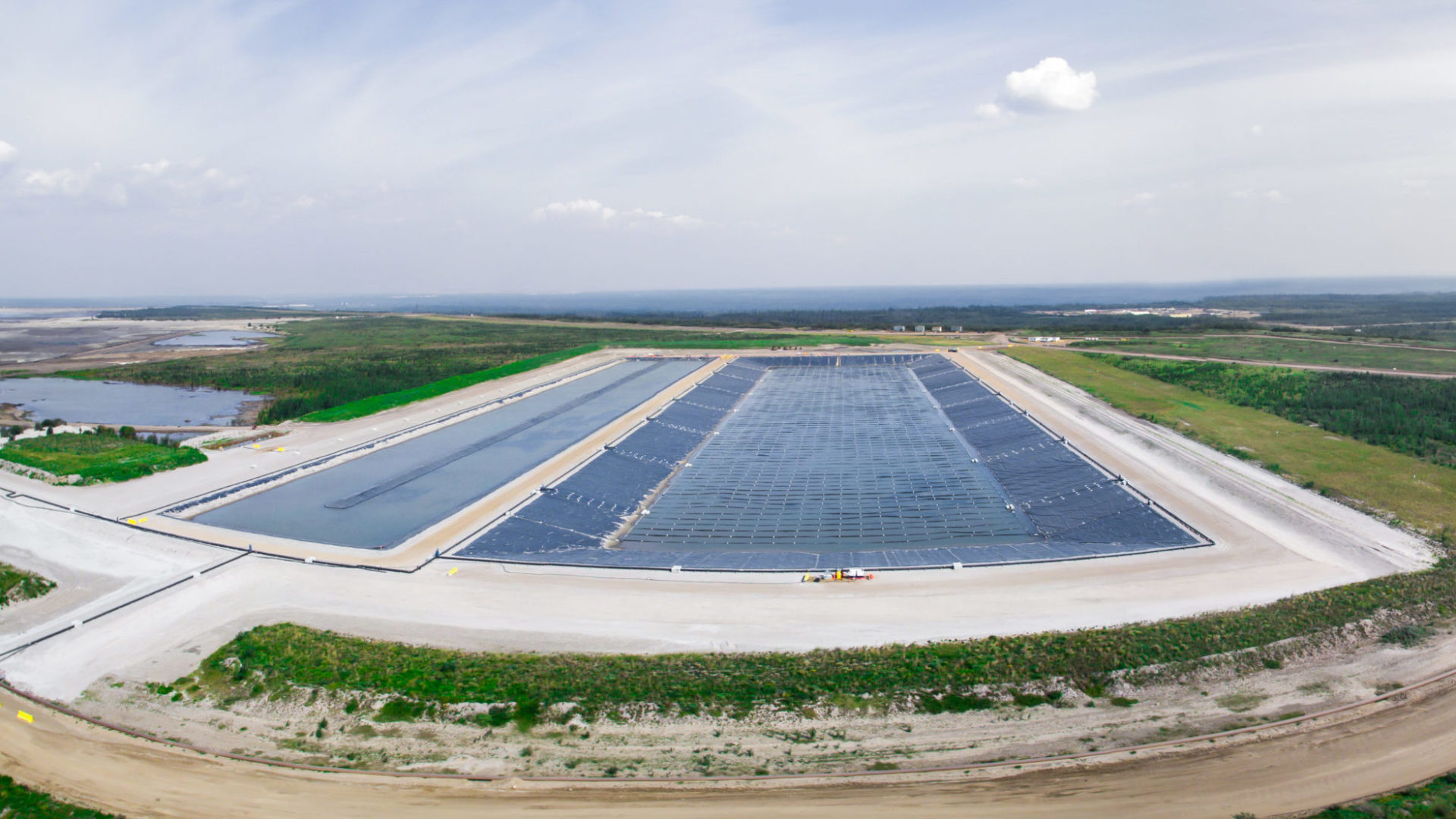Nicole Bourque-Bouchier is looking forward to getting back to work this summer on the next phase of an oil sands technology pilot that could significantly improve tailings reclamation.
Bourque-Bouchier is CEO of Bouchier Group, one of Canada’s largest Indigenous-owned contracting firms. The company has been a key player developing a commercial-scale pilot with Syncrude to test technology that could allow treated process water currently stored in tailings ponds to be safely returned to the Athabasca River.
“Tailings ponds have changed the landscape of our area, and we know that there has to be as a long-term [reclamation] solution. We’re excited to be part of this research project that might end up being that solution,” says Bourque-Bouchier, a member of the Mikisew Cree First Nation.
The large-scale pilot is of a technology that Syncrude has been developing for more than 15 years, including a smaller field test in 2012. The new facility was commissioned and started operating in fall 2019, and Syncrude is gearing back up after a pause due to the COVID-19 pandemic.
“Basically, the plan for 2021 is what we were going to do last year, we’re going to be doing this year,” says Warren Zubot, a senior engineering associate whose name is on the patent for the process.
The pilot program will include comprehensive water quality testing that was designed by the Alberta government’s Oil Sands Process Water Science Team, which includes representatives from the two senior levels of government, academia, industry and Indigenous communities.
“We’ll be going in and taking samples of the water and bringing it to a testing facility in order to test it out and see if it’s working,” says Bourque-Bouchier.
Right now, there is zero release of oilsands process water allowed back into the environment, which has contributed to the accumulation of large volumes of fluid tailings in ponds north of Fort McMurray. Based in part on the results of the Syncrude project, federal and provincial regulators are working to create rules that could allow for the release of treated process water back to the river by 2023.
Zubot says the technology works like a home charcoal-based water filter on a large industrial scale. Syncrude is using petroleum coke – a byproduct of oil sands upgrading – in a giant filtration cell to treat water used during processing.
The technology wasn’t so much invented as discovered, he says. Like all oil sands operators, Syncrude is required to store produced petroleum coke on its site. In about 2005, staff found that process water in contact with petroleum coke had reduced contaminants.
“It turns out that’s treated water,” Zubot says. “This project is just kind a snazzy way of collecting that treated water so it can be isolated and segregated for [additional] treatment.”
The pilot consists of two ponds built by the Bouchier Group that together encompass the area of about three football fields.
The first pond holds the petroleum coke, which Syncrude says removes from process water suspended solids such as clays, hydrocarbons and dissolved organic compounds, including naphthenic acids. The treated water is then pumped to the second pond, where samples are taken to confirm it is safe for release. Both ponds are lined with a 50-millimetre-thick geomembrane to prevent any losses of water, Syncrude says.
Zubot says the facility is expected to be up and producing treated water around May/June, followed by the testing program in August and project completion by early September.
“At the highest level, it’s to improve our environmental performance,” he says. “By improving our environmental performance, that means to speed up our land reclamation and being able to minimize our tailings ponds.”
